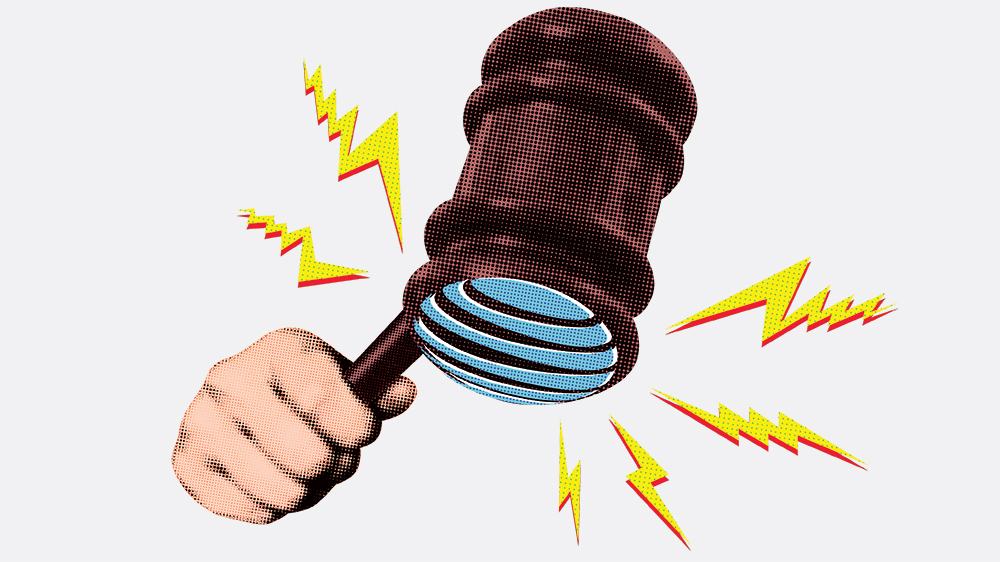AT&T-Time Warner, DOJ Await Decision in Antitrust Trial
By Ted Johnson
LOS ANGELES (Variety.com) – WASHINGTON — Seven hours before a federal judge is scheduled to deliver his ruling in the AT&T-Time Warner antitrust trial, long lines already began to form on the sixth floor of the D.C. federal courthouse.
The decision, to be announced during a 4 p.m. ET hearing, has huge stakes. is hoping for a clear win that will allow its transaction to proceed, with a June 21 deadline between the companies to complete the $85 billion deal.
The Justice Department is hoping for a victory that will affirm its robust enforcement of the vertical transaction, in this case the combination of a distribution conglomerate and content giant.
Makan Delrahim, the chief of the Antitrust Division, said in a speech on Tuesday that the decision was “in many ways potentially historic.” According to his prepared remarks to the Open Markets Institute, he said that the DOJ lawsuit was designed to “prevent an aspect of AT&T’s anticompetitive acquisition of Time Warner from making it a gatekeeper to competition in cable TV.”
A number of Wall Street analysts predict a victory for AT&T-Time Warner, given the six-week trial proceedings and some of the statements that the judge, Richard Leon, said from the bench. But much material presented in the case was redacted, and some witness testimony was conducted in closed session.
Craig Moffett of research firm Moffett Nathanson told Variety recently that he thinks “it’s a coin flip. Because of that, I would caution against looking at this as a binary yes-or-no decision. A lot depends not only on what the judge says but how he says it. There will be a lot of important nuance in the verdict itself.”
There are a multitude of ways that Leon could rule.
He could give a simple decision that allows AT&T-Time Warner’s merger to go forward, rejecting the government’s case that the transaction poses anticompetitive harm.
He could block the deal, or require that it could go forward only if the companies make major divestitures, like DirecTV or the Turner networks, or that the companies give up control of one of those divisions. That would be a defeat for the companies, which already rejected those scenarios when offered by the Justice Department as a settlement before it filed suit.
Leon also could approve the deal on the condition that AT&T-Time Warner offer to go into arbitration with rivals in the case of carriage disputes. This came up during the trial, as Time Warner’s Turner division already has offered to go into “baseball-style arbitration” with AT&T’s rivals during carriage disputes over channels like TBS, TNT and CNN. Such a decision would not necessarily be a clear-cut victory for AT&T. Leon could impose such a condition but still find that the merger poses antitrust problems, something that would weigh heavily on the government’s decision whether to appeal.
Delrahim has been an advocate of so-called “structural” remedies for mergers that pose antitrust concerns, in which companies sell or shed certain assets to secure approval. In multiple speeches, Delrahim has criticized placing “behavioral” conditions on companies to solve anticompetitive problems, arguing that they put the Justice Department in the position of acting like a regulator. The merger of Comcast and NBC Universal was approved in 2011 only after the companies agreed to a list of behavioral conditions, including arbitration, but those requirements expire this year.
During the trial, AT&T-Time Warner’s legal team, led by Daniel Petrocelli, highlighted the increased competition that they face against tech giants, like Google, Facebook and Amazon. One of the debates that has been going on in Washington is whether existing antitrust laws are sufficient to address such growth of tech giants, as some of the companies have been able to dominate certain markets.
In his speech on Tuesday, Delrahim argued that the current standard for reviewing mergers, which is the impact transactions have on consumer welfare standard, is sufficient. He said that it does “not blind us as enforcers; it focuses our decisions on appropriate considerations like price, output, innovation, quality, and choice.”
He said that the DOJ’s application of the consumer welfare standard is not a “myopic focus” on consumer prices, as it focuses on other factors like product variety, quality and innovation. He said that “as markets and technologies and economic understanding evolve, so does its application.” He told Politico that one possible metric are scores marketers use to determine if users will recommend a product to a friend.
“As I’ve spoken about recently, revealed consumer preferences can help us ascribe consumer values to zero-cost goods like those provided by some Internet platforms,” Delrahim said in his speech.
He said that applying other factors to antitrust enforcement — like the First Amendment — carries the risk of government encroachment on those very rights. He said that when they were preparing their AT&T-Time Warner lawsuit, a state antitrust enforcer “told us they would only join our case if we provided written assurances that no divestiture would go to Fox or to Rupert Murdoch.
“They actually wanted to direct the divestiture based on the viewpoint of the buyer, not on what benefits competition or consumers, as defined by the consumer welfare standard,” Delrahim said. “We, of course, rejected the request, because it would have been unconstitutional to accede to it.”
AT&T-Time Warner’s legal team sought to pursue a line of defense that they were unfairly targeted for antitrust enforcement because of President Trump’s animosity toward CNN. But Leon rejected a pre-trial effort to obtain discovery evidence of contacts between the White House and the Justice Department.

